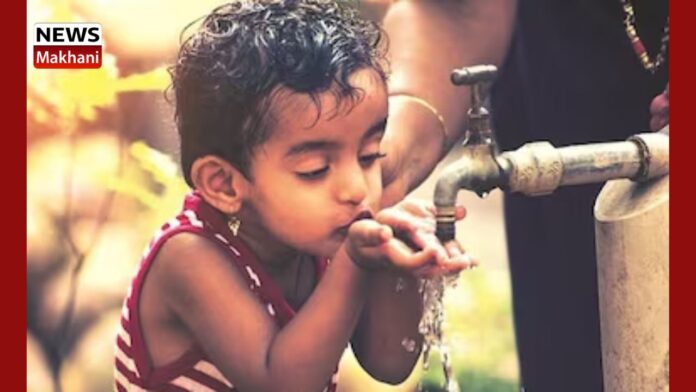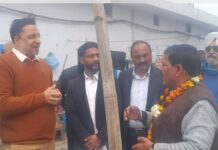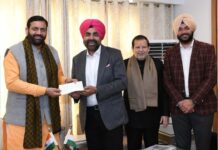Delhi, 11 DEC 2023
Government of India is committed to make provision for safe & potable tap water supply in adequate quantity, of prescribed quality and on a regular & long-term basis to all rural households in the country. Towards this end, the Government of India launched the Jal Jeevan Mission (JJM), to be implemented in partnership with states, in August 2019. Drinking Water is a state subject, and hence, the responsibility of planning, approval, implementation, operation, and maintenance of drinking water supply schemes, including those under the Jal Jeevan Mission, lies with State/UT Governments. The Government of India supports the States by providing technical and financial assistance.
Significant progress has been made in the country since the launch of Jal Jeevan Mission, towards enhancing access to tap water to rural households. At the start of Jal Jeevan Mission in August 2019, only 3.23 Crore (16.8%) rural households were reported to have tap water connections. So far, as reported by States/ UTs as on 07.12.2023, around 10.53 Crore additional rural households have been provided with tap water connections under JJM. Thus, as on 07.12.2023, out of 19.24 Crore rural households in the country, approximately 13.76 Crore (71.51%) households are reported to have tap water supply in their homes.
To instill the sense of ownership among the rural communities and Panchayats, the aspects of village level planning and community participation in all decisions pertaining to water supply systems have been included in the design of JJM.
The World Health Organization (WHO) has estimated that achieving saturation of tap water coverage in rural households in the country, will result in savings of more than 5.5 Crore hours of time every day, which is otherwise spent in collection of water for household needs, primarily for women.
Some of the major initiatives taken up under the mission for participation of women are listed as under:
- More than 5.29 lakh sub-committee/ user group of the Gram Panchayats i.e. Village Water & Sanitation Committee (VWSC) or Pani Samiti with at least 50% women members and suitable representation to marginalized sections of society, have been constituted to plan, implement, manage, operate, and maintain in-village water supply system.
- Five women are identified and trained from every village for testing the water samples through Field Test Kits (FTKs) and so far, 23.36 lakh women have been trained and so far, more than 82.05 lakh samples have been tested through FTKs in 2023-24.
- More than 14,000 NGOs/ VOs/ Women SHGs/ CBOs/ Trusts/ Foundations referred as ISAs are engaged across the country to facilitate women participation at all levels of planning, implementation, management, operation and maintenance of in-village water supply systems and contribution.
This information was given by the Minister of State for Jal Shakti, Shri Rajeev Chandrasekhar in a written reply in Rajya Sabha today.

 हिंदी
हिंदी






